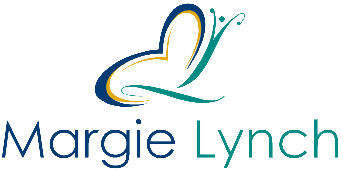Do you know what makes you tick? Do your actions align with your values? What do you contribute to the world?
These are just some of the questions you might ask yourself when you’re trying to understand how self-aware you are. As we work on personal development, self-awareness is essential to the growth puzzle.
What is self-awareness?
Self-awareness is one’s ability to objectively see and interpret their values, aspirations, emotions, motives, thoughts and behaviors.
According to psychologists Shelley Duval and Robert Wicklund, self-awareness theory posits that we are not our thoughts but merely an entity observing our thoughts. They defined self-awareness as “the ability to focus on yourself and how your actions, thoughts, or emotions do or don’t align with your internal standards. If you’re highly self-aware, you can objectively evaluate yourself, manage your emotions, align your behavior with your values, and understand correctly how others perceive you.”
This means that there are at least two types of self-awareness – your awareness of how others see you and the awareness of your inner self.
In order to become self-aware, we must engage in a series of personal development activities and spend time reflecting on who we are.
How does self-awareness contribute to creating a sense of direction?
If you don’t want to leave your life up to chance, then cultivating self-awareness can be a powerful way to gain control and steer it in the direction you want. With self-awareness comes an understanding of ourselves, our values, priorities, goals, strengths and weaknesses, and it also reveals what we do and don’t like, what we can and can’t tolerate, and what our limits are.
Self-awareness can help you see the gaps between where you are now and where you want to be so that you can improve your skills and make a plan to get there.
When we focus on our inner selves, we engage in “self-evaluation.” When we look within, we can recognize whether we are thinking, feeling and acting as we should or whether we are following our values. Building self-awareness can help you reckon how you are spending your time now and understand how you would like to spend your time instead.
The more we know and understand ourselves, the better we can shape a future that aligns with our authentic selves.
The benefits of self-awareness
Beyond helping you create a sense of direction for your life so you can create the future you desire, self-awareness also has other benefits.
It improves your ability to recognize and manage your emotions. Self-awareness is one of the key skills of emotional intelligence. When you can identify the emotions you experience, and what triggers you to feel that way, you can respond better to your emotional needs.
It teaches you self-control. With an understanding of your emotions, you’re less likely to react to them. It teaches you to pause and think about what you’re feeling so you can respond with self-control.
It can make you more proactive and goal oriented. Self-awareness means you are somewhat aware of what you need to thrive and what you desire for your future. This information empowers you to set goals and take action to get there.
It encourages self-development. The more you know about yourself, the better you can design your life and mold your behaviors, so they fit the standards you set for yourself.
It leads to better decision-making. With self-awareness comes a sense of clarity about who you are and what you want out of life. With this clarity, you can make more intentional decisions to help you get to where you want to be.
It makes us better leaders and employees. Knowing what skills you need to work on and what you can contribute to your workplace makes you a better leader and employee. Furthermore, self-awareness helps you build better relationships with coworkers.
It improves relationships. With an awareness of ourselves, we can be more empathetic and understanding of others and aware of how behaviors affect other people. As a result, we’re more likely to communicate calmly rather than act upon our initial emotions. Self-awareness also helps us take accountability for our actions when we’ve wronged someone.
Higher self-esteem. When you become self-aware and come to grips with your strengths and weaknesses, you feel more confident and comfortable with who you are. Even if you’re still a work in progress, adopting a growth mindset means you’re more likely to focus on strengths rather than your shortcomings.
Higher level of happiness. It goes without saying that when we finally see ourselves clearly, we feel happier and more at peace with who we are and the direction our life is going in.
A visioning exercise to nurture self-awareness
Visualization can be a powerful tool for envisioning what a flourishing life looks like for you.
The Best Possible Future Self exercise, pioneered by Dr. Laura King and further developed by Sonja Lyubomirsky, is a powerful visioning exercise to help you solidify a vision for your future.
Most effective when repeated for 20-minutes three days in a row, this writing exercise has been found to increase happiness, optimism and self-esteem, improve self-efficacy, and is a helpful strategy for outlining short and long-term goals.
We repeat this same exercise for consecutive days because we can go deeper each time and get more creative with our vision.
So, grab a pen and paper/journal/notepad or laptop, find a quiet place and spend 20-minutes writing your reflections on the prompt below.
“Imagine your life in ten years. You have succeeded at all of your life goals and you have created a meaningful, fulfilling, and pleasurable life filled with the people, activities, and conditions that you have dreamed about and that bring you joy. There are no impediments to the successful realization of your best possible self, so take this opportunity to remove any doubt or anxiety and instead act as if you resolved any challenges that might post a problem to living the life you want”
After you’ve repeated this exercise for three days, reflect on what you’ve learned about yourself and how you can turn this newfound knowledge into goals and action.

